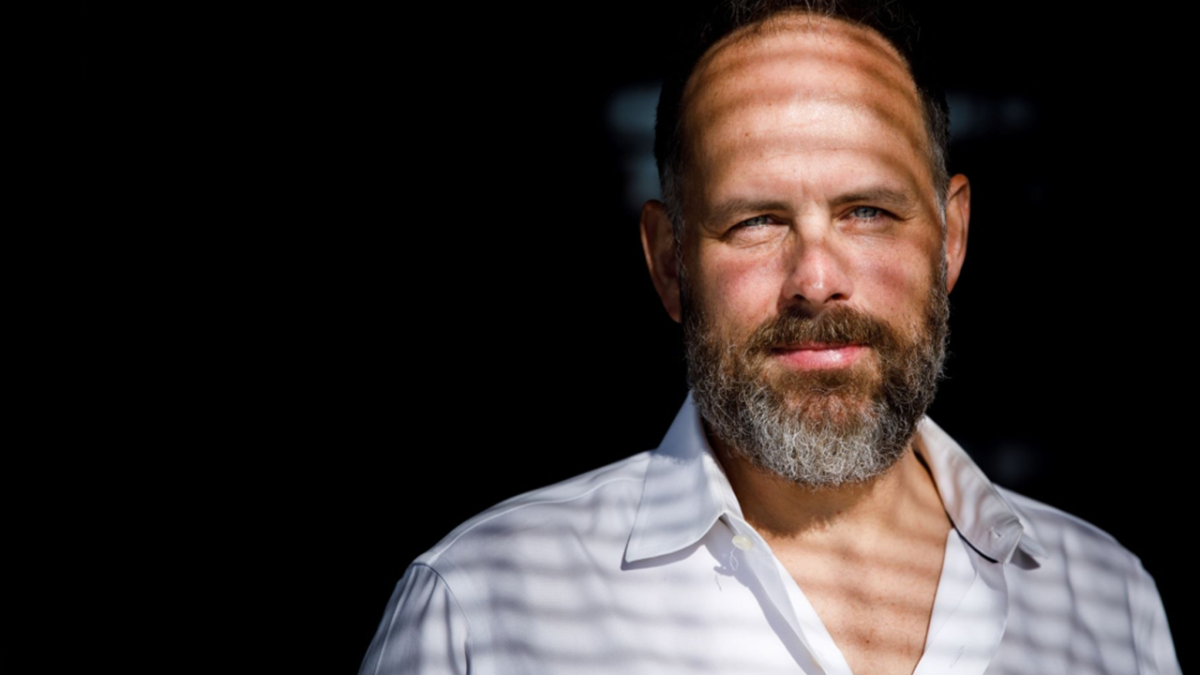In memoriam: Associate Professor Gaymon L. Bennett

Gaymon Bennett, part of the faculty of the School of Historical, Philosophical and Religious Studies and an affiliate of the Center for the Study of Religion and Conflict, is remembered for his intelligence, his eloquence, his inspirational research and teaching — and for rolling in for meetings and classes on his skateboard.
Gaymon Lamont Bennett Jr. died Feb. 1 at age 52 after a three-year battle with lung cancer.
Bennett arrived at ASU in 2014, where he joined the faculty of the School of Historical, Philosophical and Religious Studies (SHPRS). As an affiliated faculty member of ASU’s Center for the Study of Religion and Conflict (CSRC), Bennett enriched and enlivened a great number of the center’s activities, including the research projects Beyond Secularization: Religion, Science, and Technology in Public Life (Templeton Religion Trust), Apocalyptic Narratives and Climate Change (Luce/ACLS Program in Religion, Journalism and International Affairs), and Recovering Truth: Religion, Journalism, and Democracy in a Post-Truth Era (Henry Luce Foundation).
Bennett continued to teach and take part in research after receiving a diagnosis of lung cancer in 2021. In that year, the John Templeton Foundation funded Craftwork as Soulwork, his pilot project on spiritual formation for genetics researchers. His ethnographic work on the spirituality of Silicon Valley helped to inspire an upcoming workshop and other activities of the Spirituality and Public Life Initiative.
Beyond the CSRC, Bennett made key contributions to SHPRS, the Humanities Institute, the Julie Ann Wrigley Global Futures Laboratory, the School for the Future of Innovation in Society and the Lincoln Center for Applied Ethics, where he served for several years as associate director.
Named director of the Lincoln Center in fall 2023, Bennett spoke vividly of his plans for the role in an interview hat aired on KJZZ, though the progress of his illness kept him from assuming it. He was a well-published expert on the ethics of new technologies, a sought-after speaker and a gifted and popular teacher whose “Rate My Professor” profile is dotted with tags for “respected,” “amazing,” “inspirational” and “hilarious.”
Bennett had a radiant gift for connection with others, and he was described as possessing a certain “incandescence” by SHPRS colleague Richard Amesbury.
CSRC postdoc Charlie McCrary shared similar sentiments, saying, “Very few people I’ve known, in the academy or anywhere, (had) a spirit like Gaymon’s, (a way of speaking and thinking) with such intensity and, at the same time, endless warmth and kindness.”
Former CSRC Assistant Director Carolyn Forbes recalled that Bennett was “an incredible lifeline” for the center’s students and postdocs during the COVID-19 pandemic, “throw(ing) his backyard open for movie nights and parties.” Bennett also hosted festive outdoor “academic salons” at his home, where amid the drinks and chatter, faculty and grad students would share research by projecting PowerPoint slides on a sheet strung up on a clothesline.
Bennett is remembered by his colleagues for rolling in for meetings and classes on his skateboard, for the love for his daughters that was so joyfully evident when he would bring them with him to campus, for his wide-ranging intelligence and extraordinary eloquence, for the way he laughed with his eyes, and for his graceful knack for “craft(ing) brilliant thoughts into beautiful words,” as his wife Tamara Christensen put it.
This obituary was adapted from a tribute written by Tracy Fessenden, Steve and Margaret Forster Professor in the School of Historical, Philosophical and Religious Studies and director of strategic initiatives in the Center for the Study of Religion and Conflict.
More University news

Miki Kittilson appointed dean of ASU's College of Global Futures
Miki Kittilson has been appointed dean of Arizona State University’s College of Global Futures, a unit of the Julie Ann Wrigley Global Futures Laboratory.“As we enter this next phase of…
Graduate College celebrates 2024–25 Outstanding Faculty Mentors
Each year, Arizona State University’s Graduate College celebrates faculty members who have demonstrated an unwavering commitment to mentoring and supporting graduate students and postdoctoral…

ASU's building boom illustrates university's commitment to keep moving forward
To understand how Arizona State University is never settling and constantly improving, look up.At the seven-story student housing complex being built near Mill Avenue in Tempe.At the…

